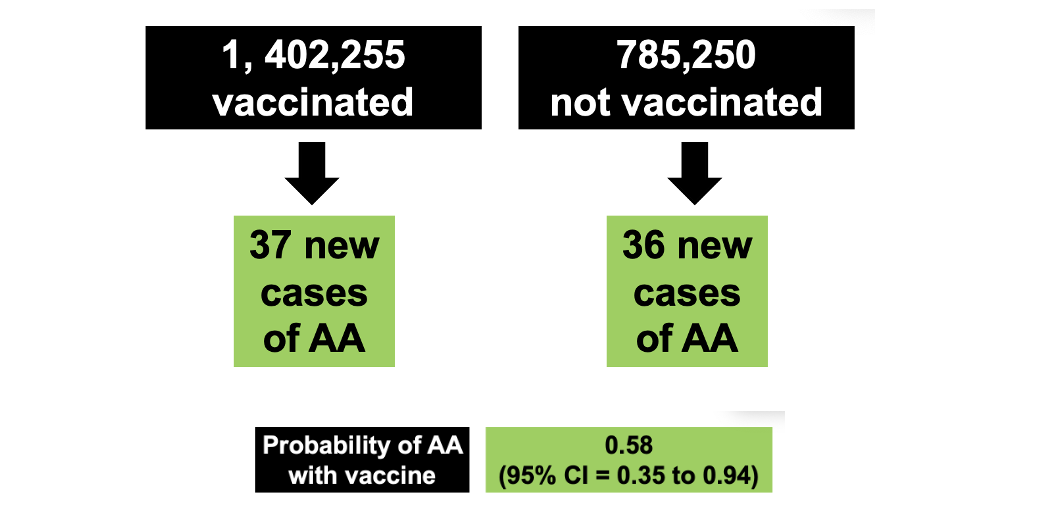Do vaccines trigger Alopecia Areata ?
Do vaccines trigger AA?
Recently published reports from some parts of the world have reported the onset of AA in some individuals who received the COVID-19 vaccination. We’ve been covering this topic for a while now.
Chen et al 2023: Vaccine's Don’t Increase AA Risk and May even Decrease It
A study by Chen and colleagues examined the question “do vaccines increase the risk of developing alopecia areata?”
The authors performed a retrospective cohort study of patients with AA diagnosed at Arrowhead Regional Medical Center (ARMC) in Colton, CA at the demographic levels of age group, sex, and race. All cases of initial diagnosis of AA at ARMC occurred between December 17, 2020, and February 10, 2023. The study period was chosen to include the period from the initial COVID-19 vaccination administration to the time of data acquisition for this study.
Between December 17, 2020, and February 10, 2023, 1,402,255 residents had been either fully or partially vaccinated for COVID-19, while 785,250 had not received a vaccination at all. Over the same period, 73 patients at the medical center received an initial diagnosis of AA. Of those 73 patients, 36 had not received a COVID-19 vaccination before the diagnosis of AA, while 37 had been either partially or fully vaccinated for COVID-19. The incidence of AA calculated with the provided 73 AA patients in a 1,402,255 population is roughly 0.0052%
The probability of acquiring AA was lower in the vaccinated group overall, with an OR of 0.58 (95% CI = 0.35 to 0.94) and a p-value of 0.02. The risk of AA was also lower among the vaccinated females, with an OR of 0.32 (95% CI = 0.16 to 0.62) and a p-value of <0.05.
SOURCE: Chen J et al. The Incidence of Alopecia Areata in a COVID-19- Vaccinated Population: A Single-Center Review. Cureus 2023. Used with creative commons license.
Conclusion
This is an interesting study. It points to the possibility that vaccines don’t increase the overall risk of developing AA – at least in this part of the United states. These types of studies are challenging to conduct and interpret and the authors don’t exclude the possibility there are confounding factors here or limitations to the conclusion. Nevertheless, the study provides helpful information that by evaluating over 2 million patients living in a certain area – the risk of new onset AA did not seem increased.
The study does not evaluated whether vaccines flare existing AA or whether there are groups where the vaccine decrease AA and groups where it might increase AA.
Reference
Chen J et al. The Incidence of Alopecia Areata in a COVID-19- Vaccinated Population: A Single-Center Review. Cureus 2023
This article was written by Dr. Jeff Donovan, a Canadian and US board certified dermatologist specializing exclusively in hair loss.




